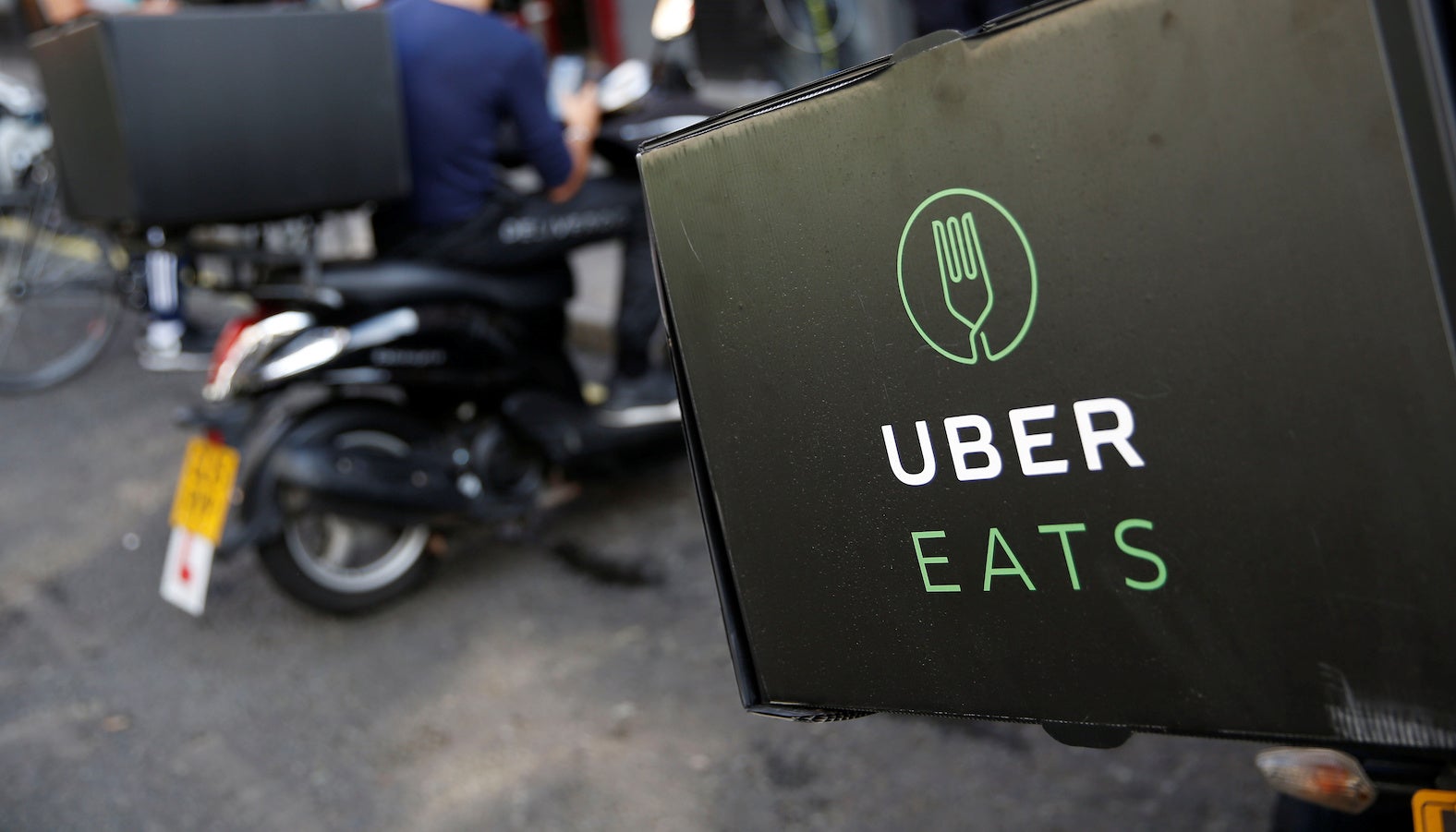UberEats is using data to create cool, non-existent restaurants
The Brooklyn Burger Factory has a simple, trendy banner image on its UberEats page and sells a variety of tasty-looking burgers—including a jerk burger—to people in the fast-gentrifying Crown Heights neighborhood of Brooklyn in New York. For locals, it looks like the perfect lazy delivery option after a long day at work. The only thing is that the Brooklyn Burger Factory doesn’t exist.


The Brooklyn Burger Factory has a simple, trendy banner image on its UberEats page and sells a variety of tasty-looking burgers—including a jerk burger—to people in the fast-gentrifying Crown Heights neighborhood of Brooklyn in New York. For locals, it looks like the perfect lazy delivery option after a long day at work. The only thing is that the Brooklyn Burger Factory doesn’t exist.
The restaurant is really Gerizim Cafe, a small local cafe. According to Bloomberg (paywall), UberEats determined there was a demand for decent burgers in the area based on its data and past order history of customers and approached Gerizim. Previously, Gerizim sold one burger a day. After launching the Brooklyn Burger Factory out of its kitchen, available only through UberEats, it now sells 75 burgers a day and revenue has grown so much that Gerizim is rebranding its actual cafe—as the Brooklyn Burger Factory.
UberEats, the fast-growing food-delivery arm of Uber, has come a long way since it launched in Toronto to little fanfare in 2015 (paywall). Having at first had to struggle to get restaurants onto its platform, the company is in the business of helping to create them now, too.
These so-called “ghost” or virtual restaurants—that don’t serve customers at a physical location, only through delivery apps—are growing tremendously fast. They allow startup kitchens and would-be chefs to serve hundreds of customers with as little as 200 sq ft of kitchen space and operate a restaurant—without the high rent, food and drink licenses, and labor costs of running the actual restaurant. Often, the kitchens are mobile and can be housed anywhere—under bridges, in the corner of parking garages, and other cheap places you couldn’t usually have a working space to cook.
UberEats has 1,600 online-only virtual restaurants in the 300 cities it currently operates—with more than 60% in the US. The Brooklyn Burger Factory example shows how Uber is keen to create even more.
As well as helping to create new businesses, the virtual-restaurant team makes suggestions to the owners of its restaurants, too, telling them where they are missing out on revenues. “We’d say, ‘If you served brunch, that would be good for your delivery business,’ ” Jason Droege, vice president for UberEverything, which built Uber Eats and is building other logistics businesses, told Bloomberg.